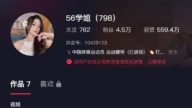【新唐人2013年09月28日讯】大陆最新发布的《蓝皮书》指出,新媒体的发展使得中共当局的公信力受到了巨大影响,大陆民意表达出现了“信网不信党”的现象。因此《蓝皮书》建议当局加大宣传和传播力度,加强网路舆论阵地建设和监管。对此,评论认为,蓝皮书的真实意图是在为中共近期的网路打压运动寻找合法理由,否则这场备受国际社会谴责和全民反对的所谓“净网”行动将难以为继。
中共喉舌《中新网》报导,9月26号,北京国际城市发展研究院与社科学文献出版社,联合发布了2013《社会管理蓝皮书》。报告中指出,中国在城市化进程中,出现了十大亟待解决的发展难题,其中包括虚拟社会管理问题、民意诉求渠道问题、如何塑造政府公信力问题、流动人口问题等等。
在谈到关于当前大陆民意诉求表达的特点时,《蓝皮书》指出,通过对近年来发生的热点舆情事件的分析看到,民意诉求表达有时已陷入一种“信上不信下、信闹不信法、信网不信党”的怪圈。对此,民众则表示,上述现象的始作俑者恰恰是中共自身。
大陆权利运动家胡军:“我们现在还不是说的‘信上不信下’的问题了,现在就是彻底中共就没有任何信可言了,上访可以这样说,它不是说他信上面,而是说他没有其他的途径,来表达这种诉求。 还有说一个‘信法’的问题,中共它本体制就是一个践踏法律的体制,特别是夏俊峰的案子我们可以看到,它就是对中国平民百姓进行杀戮。”
受访者认为,中共当局的官官相护、司法黑暗,使得民意诉求通道严重受阻,逼迫百姓不得不通过逐级上访和街头维权倾诉冤情,而最受民众欢迎的方式就是通过互联网来曝光、举报贪官恶行。
胡军:“每一个人都可以在网上表达个人的意愿,它刚好对独裁体制有个致命的解体,造成这个独裁体制的谎言彻底破灭,所以大家都希望通过网路把自己的苦难、把自己的想法、把自己的怨气告诉大众、告诉世界。”
《蓝皮书》还提出,互联网、新媒体的快速发展,使“舆论领袖”与“网路推手”作为草根阶层快速崛起,社会共识的底线被调整,这些变化给政府公信力带来了巨大挑战。
原河北广播电台编辑朱欣欣:“真正的关于公共事务的一些传言、谎言的流行啊,跟本上要解决这个问题,那首先是政府的政治体制运作的公开透明,必须做到这一点,同时还要做到公平、公正。官方很多做法缺乏透明、缺乏公正,那老百姓就相信所谓非正式渠道的,民间的传言和流言,这是必然的。”
此外,《蓝皮书》说,要提高政府公信力,就要推动有效的传播和引导性的宣传,重新塑造政府公信力。而这种说法同样遭到了民间的驳斥。
朱欣欣:“中国的舆论一直缺乏规范性和正常性,就是和官方操纵舆论有关系,它越操纵,老百姓越是不相信它们,它们这个体制运作越不公开透明,老百姓就越相信这些传言。 只要存在官方的垄断,它对言论的垄断、对舆论的垄断,那百姓就不会相信官方的种种宣传和说法。”
在谈到虚拟社会管理问题时《蓝皮书》强调,网路舆情环境是虚拟社会的第一环境,舆情信息内容事关现实社会的和谐与稳定,因此建议政府加大监管力度,完善网路立法,加强虚拟社会舆论阵地建设和舆情引导机制。
评论指出,《蓝皮书》这番言论的根本目的,是在为备受法律界诟病的“两高”网路言论司法解释,和中共全面紧缩网路舆论自由,寻找合法借口。
采访编辑/ 张天宇 后制/萧宇
China’s Blue Book: People Trust The Internet
Rather Than The Communist Party
China’s latest Blue Book said that the development
of social media affects the regime’s credibility.
In Mainland China, people would rather trust Internet
information than the Chinese Communist Party (CCP).
The Blue Book suggests the regime strengthen propaganda
work and control of public opinion on the Internet.
Commentators said that the Blue Book is trying to
find excuses for recent online suppression.
If not the so-called “online cleaning out" campaign which is
condemned by international society and the entire nation
will be hard to continue.
The regime’s media China News reported on Sept. 26, Beijing
officially published the 2013 Blue Book of Social Institution.
The report listed 10 urgent issues that need to be resolved
in China’s urbanization process.
It includes social management, channel for public appeal,
regime’s credibility, floating population and other issues.
Regarding characters of public opinion, the Blue Book said
from what had happened in recent years that sometimes,
the public fall into a circle “rather rely on higher authority to
solve problems;
They rather believe in violence than the law.
They rather believe online news than the CCP."
Regarding these points, people said the CCP is the main cause.
China’s activist Hu Jun: “We are not talking about not trusting
a higher authority, actually the CCP is completely untrustworthy.
People try to appeal to a higher authority; it doesn’t mean they
trust them, but there is no other way for them.
Regarding the law, the CCP is violating it. With Xia Junfeng’s
case we know the law is a tool for killing Chinese citizens."
Hu said the CCP officials help each other. The judiciary is
corrupt, peoples’ appeals are blocked everywhere.
Civilians have to appeal to higher authority step by step,
or protest in the street for their mistreatment to be heard.
Now the most popular channel is via the internet
to expose corrupt officials.
Hu Jun:"Anyone can express their wishes online.
It is just the right way to collapse the CCP dictatorship.
It causes the CCP’s lies to shatter, people use the social
networks to share their hardships, ideas and complaints."
The Blue Book said that the social networks and
social media developed very fast.
It made big bloggers and online promoters rapidly
grow from a low class.
The bottom line of social consensus is adjusted.
All these changes have brought great challenges
to the regime’s credibility.
Zhu Xinxin, former editor of Hebei Radio Station:"To get to
solve the problem of 'spreading rumors' about social affairs,
the regime must operate transparency. They must achieve this
point, meanwhile they need to be fair and equitable.
Now officials lack transparency and fairness in many practices.
People can only trust informal channels,
such as rumors and gossips, it is inevitable."
The Blue Book also said to improve the regime’s credibility,
it needs to develop effective channels and guide publicity to
build up its credibility again. However, these words were
refuted by the public.
Zhu Xinxin:"Chinese public opinion lacks standards and
formality. This relates to the regime’s manipulation.
The more the regime manipulates, the less people will believe it.
The more opaque the CCP system the more people will believe
in rumors.
As long as the regime’s monopoly exists, and it controls public
opinion and expression, people won’t believe the propaganda."
Regarding virtual community management, Blue Book stressed
that online expression is the first virtual community environment.
Online information content relates to the society’s harmony and
stability.
The Blue Book suggests the regime strengthens supervision,
improves Internet legislation, and strengthen the development
and guidance of the public opinion aspect.
Commentators point out that the purpose of the Blue Book is
trying to find a legal explanation and excuse for the recent
suppression of online expression.



























